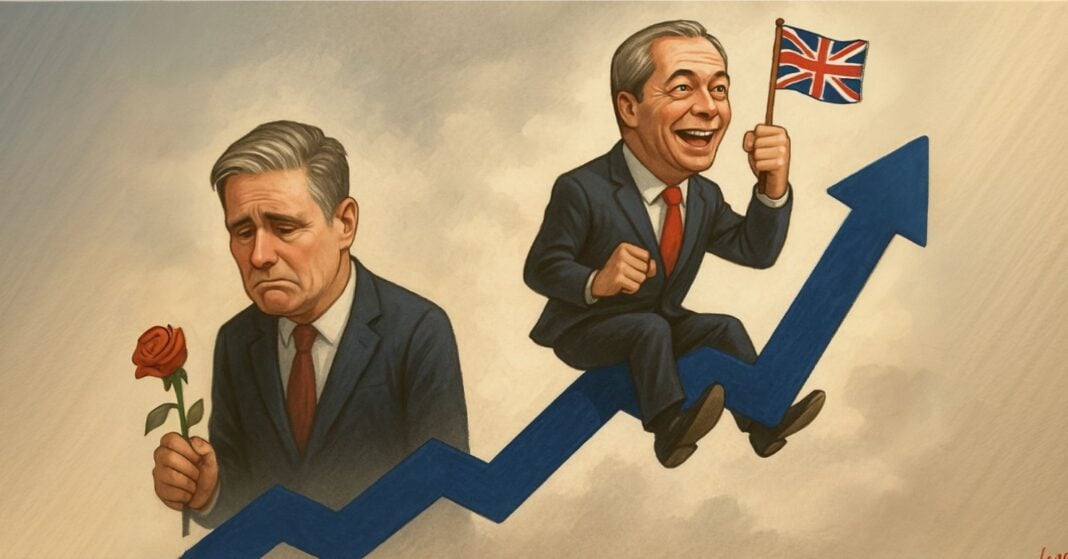Only a year ago, Keir Starmer’s Labour was being celebrated as the absolute triumphant of the new British political cycle. In the 2024 general election, Labour had won more than 400 seats out of 650, marking one of the clearest victories in decades. But the winds of politics change rapidly, and today it is a familiar face that has never really left Downing Street that is shaking Downing Street: Nigel Farage.
Officially re-entering the field with his Reform UK movement, the direct heir of the Brexit Party, Farage has again been able to establish himself as an undisputed protagonist. With a strongly identitarian, anti-establishment and euroskeptic agenda, he has restored a voice to an electorate orphaned of representation after the Conservatives’ collapse. At the 2024 round, the party had garnered a respectable 14 percent of the vote, but because of Britain’s “first-past-the-post” electoral system – in which only the first in each constituency wins – it had taken home just five seats, including that of Farage himself.
Today, however, the music has changed.
According to the latest polls (POLITICAL Link → https://www.politico.eu/europe-poll-of-polls/united-kingdom/), Reform UK would stand at 29 percent nationwide, with a projection exceeding 250 seats, an impressive leap from 2024 numbers. To put it bluntly: if these estimates are confirmed at the ballot box, this would be the first real break in British bipolarity since World War II. The United Kingdom, for decades contested between the Labour Party and the Conservative Party, could witness the rise of a third pole capable of rewriting the parliamentary balance.
But Farage is not only benefiting from the discontent. He has been able to win over a new generation of voters through modern and effective communication strategies. On TikTok, in particular, his videos generate millions of interactions. With a direct, provocative and nonconformist style, he speaks to the belly of the country, but with an ideological coherence that many, even among critics, recognize in him. At a time in history when traditional parties are struggling to distinguish themselves, Farage comes across as the only one offering a clear message.
Meanwhile, Keir Starmer seems to have already begun to lose altitude, a victim of the same attrition that has affected other European socialist leaders. Think of Pedro Sánchez in Spain, swept up in scandals and protests, or Olaf Scholz in Germany, who is increasingly losing support. The parable of British Labor could thus follow a similar script.
Looking at the political history of the United Kingdom, the comparison comes naturally. Before World War I, the system was dominated by two poles: Conservatives and Liberals. But with the advent of the postwar period, the Liberals fragmented and Labour took its place as the new antagonistic force to the Tories. Today we may see a similar phenomenon, but with a change in polarity: it is the right wing that is undergoing a transformation. The Tories, penalized by years of compromise and failure, are losing pieces and votes. And those same votes are migrating to Farage, who is bidding to become the new reference point of the conservative camp.
Reform UK is not only eroding support: it is redefining the field of the British right.
The party’s growth is inversely proportional to the collapse of the Tory Party. A real transmigration of popular approval, as visible in the data as in the territories once conservative strongholds, where today only the face of Nigel Farage can be seen.
Of course, talking about the end of bipolarity might seem premature. But if it is true that history repeats itself, this time it will not be on the left but on the right that we may witness the paradigm shift. Labor may retain its position of strength, but its historic opponent is in danger of being ousted. And Farage, from being a divisive figure, could become the protagonist of the biggest political reshuffle in the United Kingdom in a century.






















